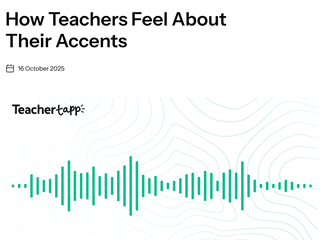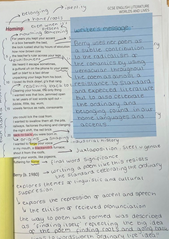Last week we were reminded, once again, about the power of culture to shape society. The BAFTA television awards’ recognition of 2024’s Mr Bates vs The Post Office drove home how an issue impactfully portrayed can transcend the screen, amplifying around watercoolers and through hashtags until it echoes across the debating chambers at the centres of our democracy. ‘It spoke to a nation,’ said Baroness Floella Benjamin on the night, and ‘it brought dynamic change.’
We’re in another of those moments right now. Jack Thorne’s Adolescence has turbo-charged so many conversations since its March release that it’s difficult to know where to start, but perhaps its biggest legacy will be the spotlight it’s burned into the discussion around online harms and media literacy. ‘Adolescence’s message has echoed around the world,’ said The Guardian, sparking ‘a digital safety debate’ according to the World Economic Forum. Thorne himself has called for ‘radical action’ - and the UK government seems to have listened, launching an inquiry ‘to establish a clear vision for what good media literacy would look like in the UK, and examine the barriers to achieving this vision.’
At the end of April the EMC’s Claire Pollard gave evidence to the House of Lords Communications and Digital Committee on these areas on behalf of the MEA, pressing the case not just for a ‘protectionist approach’ to media literacy, in which schools work to ‘inoculate’ students from harms such as disinformation and radicalising content, but for a wider development of media skills and creativity in order to empower our young people more generally. The following are a selection of the arguments put forward, worth listing if only to form a manifesto of sorts:
- Media literacy is the result of a good media education, but there isn’t enough media education in schools
- Media literacy is the right of every child, and it should be embedded in schools from early years onwards
- Media Studies is often derided or mocked by the same people who express anxiety about young people’s media literacy – this is constant source of frustration for media educators
- Media Studies should be compulsory - especially in KS3 - and has the potential to make a real impact in delivering media literacy outcomes for young people
- Within many schools the focus on assessments takes priority, and media literacy initiatives take a back seat
- There is a growing anxiety among teachers of Media and English that they feel they aren’t doing enough to teach media literacy in schools
- Media Studies needs to be part of the curriculum from Early Years onwards, and something that students have universal access to. This needs to include the creation of media texts as well as the analysis and deconstruction of them
- The study of media should be a part of the core English curriculum. Putting media texts back into the English language GCSE exam – as they were prior to 2014 – will have the most impact on our school age population
- Media literacy should be something all teachers are trained to deliver, and more should be done to support teachers to train as Media and Film Studies specialists - currently it’s the only subject in which students don’t receive any financial support in the form of government bursaries
- The culture in some schools of increased direct instruction and a focus on recalling knowledge and facts means that it’s harder to get students to be discursive. Media education is best delivered through discussion, group and project work, which have disappeared entirely in some schools
Little of the above will be unfamiliar to anyone involved in delivering media education - these are the arguments that have gripped practitioners since at least the subject reforms of the last decade, as shown within the EMC’s own research here. But what’s interesting is the extent to which they’re seeping out of our subject silo into wider discourse, with Ofcom stating earlier this year that increasing teachers’ capacity to support and develop students’ media literacy is of critical importance. As Professor Julian McDougall who worked with Ofcom on this report put it, ‘Media literacy education is inconsistent across the UK and policy is lacking. There is a clear and urgent need to support media literacy practices in schools… Developing media literacy learning through co-design, creative production and civic action is the most effective approach.’
For us this is heartening - for far too long the discussion around the place of media within the curriculum has been at best denigrated and more often ignored, and perhaps now some progress can be made. It’s better still that this opening has come about largely as the result of a television programme - itself a medium often dismissed as unworthy of serious study. Let’s hope some lessons have been learned.
The MEA is the subject Association for film and media educators and is free to join. For more information, please go to https://www.themea.org.uk
Links
The Guardian Adolescence's message has echoed around the world - but a social media ban is the wrong move
World Economic Forum Adolescence has sparked a digital safety debate: a new report offers a fresh approach to tackling online harm
Government Inquiry Inquiry launched into media literacy
UK Parliament How do we improve children's media literacy both in and out of school Lords to ask experts
Parliament TV House of Lords Digital and Communications Committee, feat. Claire Pollard
EMC research Survey into media literacy teaching in English




